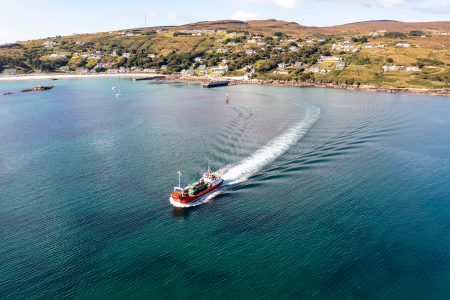Coastal Shipping and Combined Transport Roundtable

Some regions now have maritime cabotage services that are fully integrated into door-to-door freight transport services. Participants in the Roundtable examined efficient combined transport and research into possible ways to reduce the cost of multimodal freight transport, including reducing terminal/port costs and those of first and last-mile transport. This is expected to reduce the carbon footprint of freight transport by encouraging modal shift from road freight toward rail and maritime freight.
This Roundtable was part of the ITF’s 2022-23 Programme of Work. A report summarising the issues discussed during the Roundtable was published in 2023.